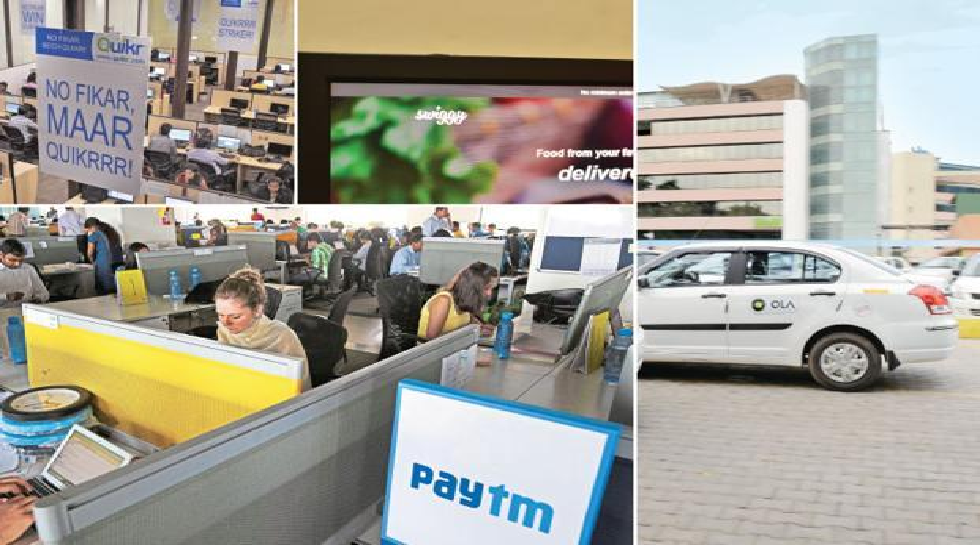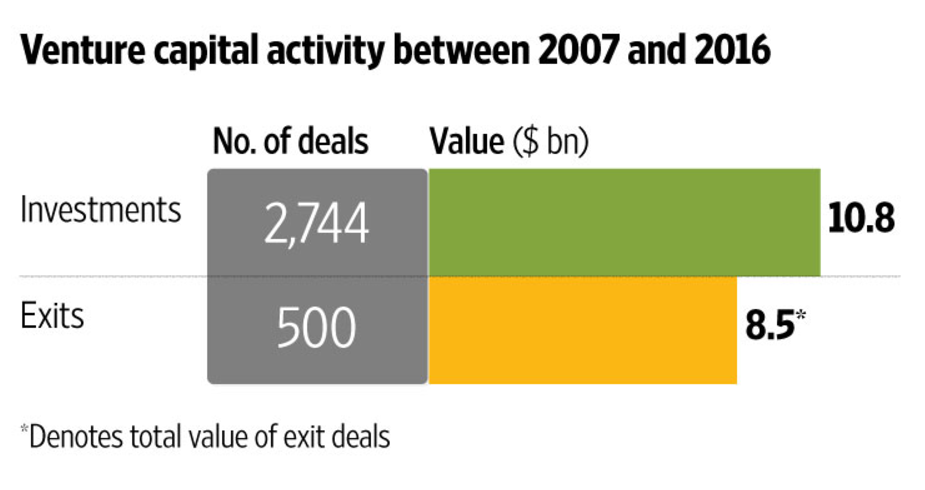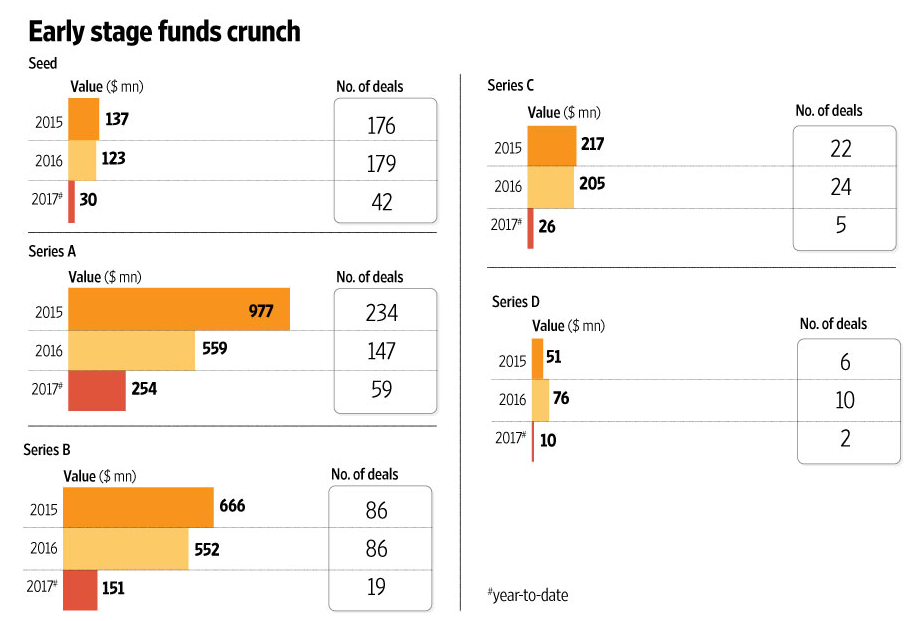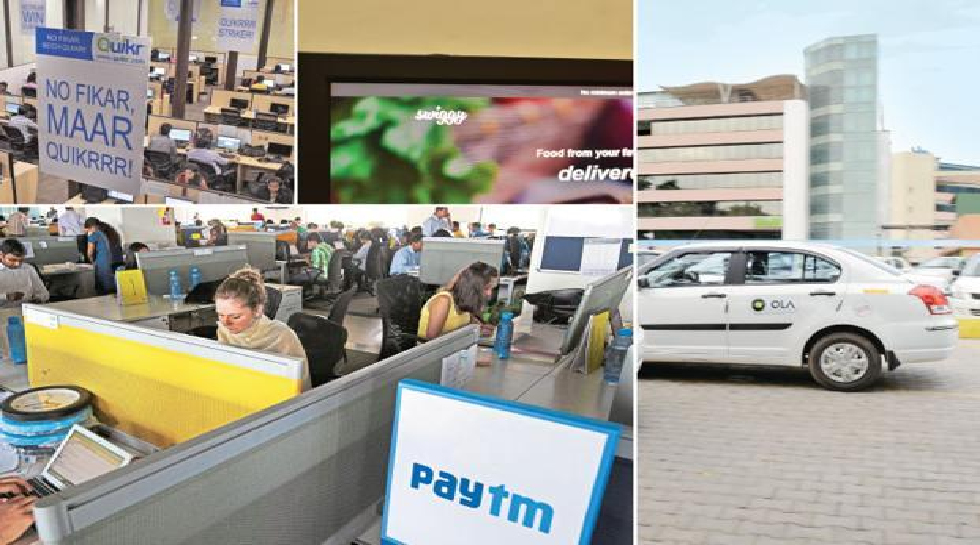
It is no secret that for the past several months, more than a few venture capital portfolios in India have been up for sale en masse and at steep discounts.
The problem is that there aren’t many buyers out there for those portfolios. Most of the portfolios on sale represent the so-called copycat investing that has marked the greater part of the past decade of early-stage investing in India and aren’t worth much today in the midst of what is now clearly a prolonged downturn.
“We (the venture capital industry) are getting branded globally for not being able to show much (in returns) for the money that’s gone in so far. There are a lot of portfolios on sale but such sales are not easy to price. Buyers are naturally wary that people are trying to get rid of the lemons through these secondary portfolio sales,” says a fund manager at the Mumbai offices of a global venture capital firm who spoke on condition of anonymity.

Since 2007, when venture capital as an asset class returned in earnest to the Indian market, venture capital firms have invested more than $10 billion in local start-ups, mostly in the technology and Internet sectors, according to data compiled by Chennai-based researcher Venture Intelligence.
So far, such investors have struck exit deals worth $8.5 billion. After providing for fund manager fees, which is calculated at 2% on the fund principal on a recurring annual basis, and accounting for principal investments, the profits left for distribution wouldn’t be a very significant sum.
All of that is just the early-stage capital that’s been sunk into the market. Add to that the later-stage or growth capital that has followed the early-stage money, and the overall investment would easily ride up to at least $20 billion.
Much of the later-stage money, which has come mostly from global hedge funds and strategic investors, also remains unrealized, further compounding problems for the early-stage market.
For the past 18 months, since the venture capital market slipped into a downturn, early-stage investors have been more focused on conserving cash and less eager to back new start-ups.

Last year, Series A investments, the first institutional round of capital raised by a start-up, nearly halved to $559 million. The funding crunch continues into this year and, by most accounts, will last several more quarters.
“Early stage investments will remain on pause till investors are able to consolidate existing portfolios. Right now, nearly every venture capital firm out there is trying to get rid of assets that aren’t going anywhere in the hope that they will get at least the principal (investment) back,” says a venture capitalist at a Bengaluru based-firm who also spoke on the condition of anonymity.
Copycat investing
The current crisis that the venture capital industry finds itself in today can, to a great extent, be attributed to investors backing too many so-called copycat businesses, especially in the consumer Internet sector.
A substantial portion of the money that has been invested over the past 10 years has gone into businesses that one way or the other tried to clone successful versions from elsewhere in the world.
In the consumer Internet sector, these manifested themselves across a variety of segments such as e-commerce, cab-hailing services, food ordering and delivery services or the so-called food-tech segment, online classifieds and property search.
Now, there’s absolutely nothing wrong with borrowing business models from overseas markets. Except, it cannot be done without paying heed to ground realities.
“Even if business models are borrowed from the West or East, they will need to have some strong India-centric localization to make the business both differentiated and better suited for Indian consumers. For example, we have fintech models that cater to the mass consumer market,” says Niren Shah, managing director at Norwest Venture Partners India, a franchise of Silicon Valley-based Norwest Venture Partners which invests in early- and growth-stage companies.
Furniture retailer Pepperfry, classifieds platform Quikr and food ordering and delivery platform Swiggy are among the less than handful of consumer Internet bets the firm has made in India.
In rushing after copycat businesses, investors may have forgotten to diversify their bets enough to cushion themselves against a downturn in select segments.
By nature, venture capitalists tend to invest in a herd. As the so-called copycat businesses gained popularity, investment portfolios became heavily skewed in favour of such businesses.
Further encouragement came from unlikely quarters such as hedge funds and strategic investors who jumped onto the bandwagon.
The entry of such non-traditional investors in the start-up market would lead to a ballooning of valuations that would eventually crash.
The consumer Internet sector alone is estimated to have been the recipient of nearly 80% of all the money that has been invested in start-ups, early- and late-stage, over the past decade.
Eroding valuations
The downturn that is currently in session is largely on account of consumer Internet start-ups losing their bearings in the deluge of capital that flooded the market, especially in the later part of the decade.
“Indian entrepreneurs need to change their mindset. The goal should be to build viable and profitable companies with great business models as quickly as possible. I just don’t understand funding (for start-ups) in billions. I also don’t understand entrepreneurs getting rich without building great companies,” says Kanwal Rekhi, founder and managing director of Bengaluru-based venture capital firm Inventus Capital Partners.
The firm has largely stayed out of the consumer Internet rush and invests across the technology spectrum both in India and the US.
Even the celebrated unicorns, start-ups privately valued at $1 billion or more, haven’t been able to withstand the downturn.
Delhi-based e-commerce company Snapdeal, once India’s second most valuable technology start-up, is on the block after running out of cash. Its valuation has crashed from a peak of $6.5 billion to about $1 billion…

